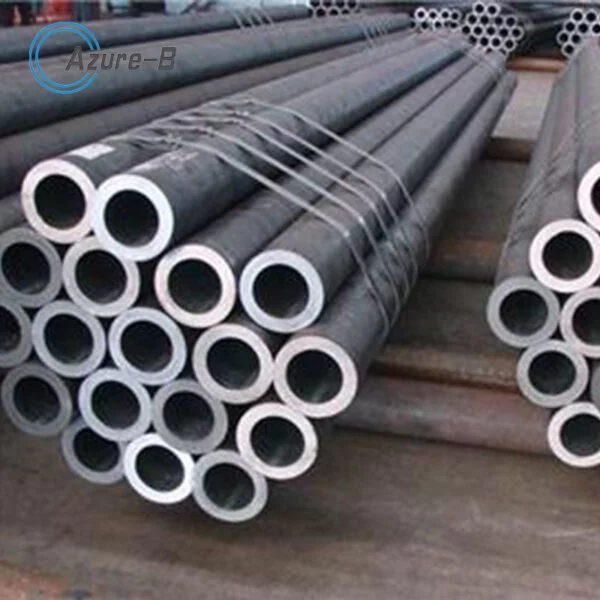ASTM A213 Alloy Steel Tube
Alloy steel tubes that meet ASTM A213 standards provide the literal backbone to much of the world’s infrastructure. From structural columns in skyscrapers to piping systems in chemical plants, these high-quality tubular products made from alloy steel are engineered for superior strength, corrosion resistance, and durability across a wide range of demanding applications.
In this blog post, we’ll explore what sets ASTM A213 alloy steel tubes apart, delve into their technical specifications and properties, review manufacturing and testing processes to achieve compliance, and uncover why they are the product of choice for critical systems in construction, energy, industry, and beyond. Gain insight into this staple material at the core of bridges, buildings, refineries, and more.
Defining ASTM A213 Alloy Steel Tubing
ASTM A213 establishes the standards for seamless and welded austenitic stainless steel pipe intended for high temperature and general corrosive service. It covers multiple steel grades otherwise known as “alloys” which contain mixtures of iron, carbon, manganese, phosphorus, sulfur, silicon, nickel, chromium, molybdenum, vanadium, columbium, titanium, zirconium, copper, and so on in varying combinations.
These alloying elements each impart specific benefits depending on application needs from boosting tensile strength, to enhancing hardenability or weldability. By fine-tuning chemistry formulations, steelmakers can engineer A213 tubular products to offer just the right balance of required mechanical, fabrication, and chemical properties.
Key Applications Demanding ASTM A213 Compliance
Industries and applications where ASTM A213 alloy steel tubes meet critical safety and performance demands include:
-Structural Construction: Columns, beams, trusses
-Pressure Vessels and Heat Exchangers
-Pipeline Transport of Gas, Oil, Chemicals
-Refinery and Petrochemical Facilities
-Nuclear Power Plants
-Pulp and Paper Mills
-Aerospace and Military Hardware
In environments like these, structural stability, leak-free operation, resistance to rupturing or cracking, and ability to withstand stress, corrosion, and extreme temperatures can have major impacts on safety, reliability, profitability, and more.
5 Key Attributes and Tests Defining A213 Alloys
With so much potentially on the line, ASTM A213 sets stringent benchmarks when it comes to: 1.Tensile Properties: Minimum yield strength, elongation, and other tensile specs must perform as stated to handle anticipated loads. 2.Hardness Testing: Measures resistance to indentation to ensure suitability for intended service lives. 3.Flattening Tests: Verifies ductility to bend without fracture at specific degrees. 4.Hydrostatic Tests: Confirms manufacturing soundness and strength by applying internal hydraulic pressure well beyond operating limits. 5.Chemical Analysis: Quantitative chemistry composition provides the precise mixture of durability, weldability, and corrosion resistance sought.
Achieving these outcomes starts with advanced steelmaking and follows through closely monitored finishing operations.
Precision Manufacturing Matters
All manufacturers of ASTM A213 alloy steel tubes must demonstrate consistent adherence to ASTM norms. This entails precise control and documentation at every production stage including:
-Steelmaking: Fine-tuned chemistry and temperatures ensure uniformity melt-to-melt.
-Casting: Continuous-cast strands are immediately extruded while hot.
-Hot Working: Multiple hot rolling and shaping stages refine the metal.
-Heat Treatment: Carefully controlled cooling rates impart uniform properties.
-Testing: Both production runs and finished tubes undergo battery of tests to verify A213 conformity.
-Inventory Control: Tagged material batching prevents mixing compliant and non-compliant items.

By following these stringent procedures utilizing advanced automated systems, reputable mills deliver certified ASTM A213 alloy steel tubes that end-users can trust will perform up to code time after time. No shortcuts allowed!
Trust in ASTM A213 Alloy Steel Tube Infrastructure
The next time you drive across a bridge, pass a towering skyscraper, or fill up your gas tank, take comfort knowing that ASTM A213 alloy steel tubing likely plays an integral yet invisible role in that underlying infrastructure. With A213 compliance ensuring reliable material integrity, the structures and systems synonymous with modern technological society are able to stand, operate, and support our demands safely day in and day out.

